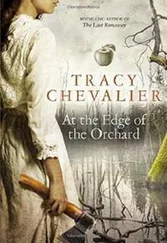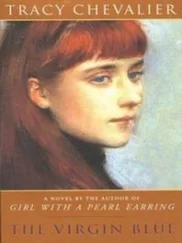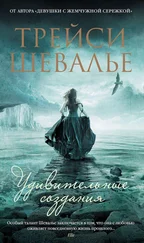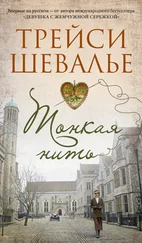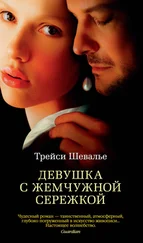Next day Mr. Jackson went out and shot that white horse through the head.
Later, as our pa and Joe and me was digging, the police came to take me away for questioning. Our pa didn’t even look surprised. He just shook his head and I knew what he were thinking-I should never have got in with them girls.
The police asked me all kinds of things about what I did that day-not just about looking for Ivy May, or finding her, but about the horse and Kitty Coleman and Mr. Jackson. They seemed way off the mark to me, and none too nice about it neither. It were like they wanted to make their lives easy and say I did the crime.
When it sounded like they was ready to accuse me I said, “Who would be stupid enough to do that to a girl and then bring her home to her parents?”
“You would be surprised what criminals do,” one of the policemen said.
I thought of the tall man with the specs at the end of the mews. But when it came time to describe finding Ivy May I didn’t tell ‘em about him. Would’ve been easier on me if I had-given ’em someone else to look for.
But I knew he was long gone-them bumblers would never find him.
I would, though, someday. Find him. For Ivy May.
I arranged to meet Miss Coleman at her family grave. I’d considered asking her to come to Faraday, where her mother and I used to meet. But it was a silly, sentimental thought, and risky besides-questions might be asked if we were seen alone in the Dissenters, whereas in the meadow we could be thought to be discussing burial arrangements.
She was dressed all in black, with her hair up under a black straw hat. I had never seen her before with her hair up-she looked several years older. She has no idea but she is beginning to resemble Kitty.
“Thank you for coming, Miss Coleman,” I said as we stood side by side next to the grave. “I’m so sorry for your loss. It has been a great shock to us all. But your mother is with God now.” I blinked rapidly at the ground. I often express my condolences to mourners at the cemetery, but this time I felt the inadequacy of the words.
“My mother did not believe in heaven,” Maude said. “You know that.”
I wondered what those last three words were meant to signal. How much did she know about my intimacy with her mother? Her expression was so guarded that it was impossible to guess.
“Simon didn’t tell me what you wanted to see me about when he delivered the message,” she said. “I assume it is to do with my mother’s burial, which I thought my father went over with you.”
“He was here yesterday, yes. There was something I wished to discuss with him but did not. I thought that perhaps you and I might do so.”
Maude raised her eyebrows but said nothing.
There was no easy way to say it-no stock expressions or careful euphemisms to smooth the shock of the idea. “Your mother told me she wished to be cremated rather than interred.”
Maude looked up at the Coleman urn, studying it as if she had never seen it before. “I know that. She was always worried she might be buried alive.”
“Then perhaps you could tell your father what she told you.”
“Why didn’t you tell him yesterday?”
I paused. “She spoke of it only unofficially-she did not put it in writing or tell her husband. It would not be appropriate for me to tell him.”
Maude pursed her lips. “Daddy already knows she wanted to be cremated. They used to argue about it. He feels we should do what society dictates concerning the disposal of-of bodies.”
“He won’t agree to it even if he knows it was his wife’s fervent wish?”
“He’ll do what looks best.” Maude paused. “He lost her, and now he has got her back he will be sure to keep her.”
“What people do with their dead is usually a reflection of themselves rather than of their loved one,” I said. “Do you think all these urns and angels mean anything to the dead? It takes a very unselfish man to do exactly what his wife wants without his own-or society’s -desires and tastes entering into it. I had rather hoped your father was that man.”
“But surely if all these monuments mean nothing to the dead, then nothing we do to them does?” Maude replied. “If they don’t care, shouldn’t we then do what is important to us? It’s we who are left behind, after all. I’ve often thought this place is really for the living, not the dead. We design the grave to remind us of the dead, and of what we remember of them.”
“Will the urn on your family grave remind you of your mother-of what she was and what she wanted?”
“No, there is nothing of my mother on it,” Maude admitted. “If my mother were to choose her own grave it would have a statue of Mrs. Pankhurst on it and under her name it would read ‘Votes for Women.’ ”
I shook my head. “If your mother were to choose her own grave there would be no monument or words at all. It would be a bed of wildflowers.”
Maude frowned. “But Mummy is dead, isn’t she? She really is dead. She’s not going to design her grave.”
She was a remarkable young lady-there are few who could say what she said without flinching.
“And because she’s dead,” she continued, “surely she won’t care what happens to her body. She won’t be buried alive-we know that. It’s we who care-my father most of all. He represents all of us, and he must decide what is best.”
I leaned over and brushed away a spider from the Waterhouse grave. I knew it was not fair of me to make demands on her-after all, she was only thirteen years old and had just lost her mother. But for Kitty’s sake I must. “All I would ask of you, Miss Coleman,” I said gently, “is that you remind your father of what you know-of what he must already know-of your mother’s wishes. It is of course for him to decide what will then be done.”
Maude nodded and turned to go.
“Maude,” I said.
“Yes?”
“There is something else.”
She closed her eyes briefly, then looked at me.
“Your mother’s funeral”-I stopped abruptly. I could not tell her-it would be a breach of my professional duties, and I could lose my position for saying anything. But I wanted somehow to warn her. “It would be best if you spoke to your father sooner rather than later.”
“All right.”
“It is a matter of urgency. Perhaps more than you know.”
“I’ll speak to him today.” Maude turned and hurried down the path that led to the entrance.
I stood there for some time, studying the Coleman grave. It was hard to imagine Kitty being buried there. That absurd urn made me want to snort with laughter.
She came to see me in my study as I was going through papers. I stopped writing. “What is it, Maude?”
She took a deep breath-she was clearly very nervous. “Mummy said to me once that she wanted to be cremated and her ashes scattered.”
I looked down at my hands. There was a spot of ink on the cuff of my shirt. “Your mother said a great many things that have not come to pass. She once said she wanted four children. Do you see any sisters or brothers about? Sometimes what we think and what we do are not meant to be the same.”
“But-”
“That’s enough, Maude-there is nothing more to be said on the matter.”
Maude shuddered. I’d spoken more sharply than I’d intended. These days I find it difficult to control my tone.
“I’m sorry, Daddy,” she whispered. “I was only thinking of Mummy. I didn’t mean to upset you.”
“You haven’t upset me!” I pressed my pen so hard into the paper that the nib suddenly cracked. “Damn!” I threw down the pen.
Maude slipped out without another word.
Читать дальше
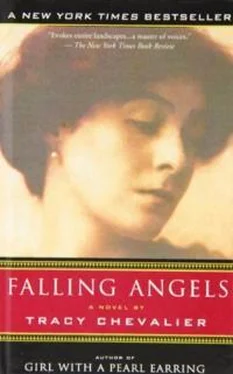
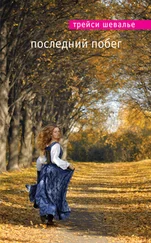
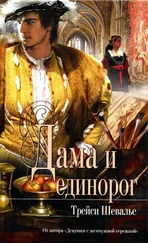
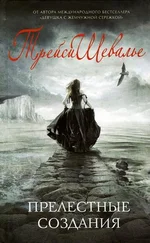
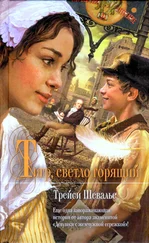
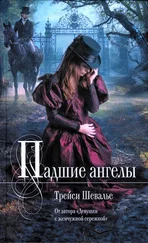
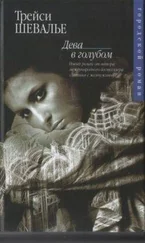
![Трейси Шевалье - Тонкая нить [Литрес]](/books/386177/trejsi-shevale-tonkaya-nit-litres-thumb.webp)
